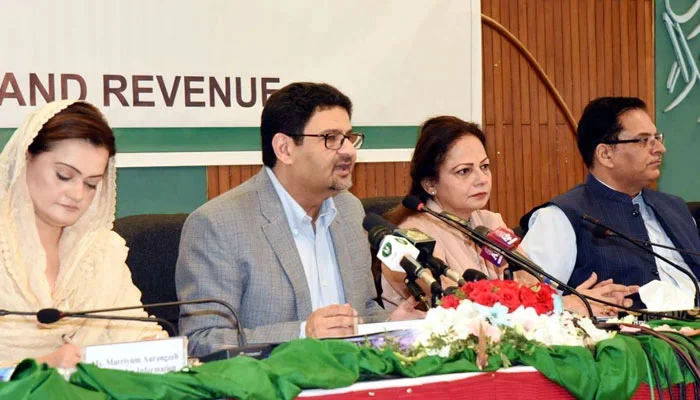ISLAMABAD, June 12(ABC): The International Monetary Fund (IMF) is still unhappy with the government over the budget, mainly because they did not implement the Personal Income Tax (PIT) measures suggested by it, revealed Finance Minister Miftah Ismail Saturday.
Addressing the post-budget news conference at P-Block Auditorium, Ismail said there was no development on the IMF front at the moment.
‘No other choice but to take more tough decisions’
He admitted that there was no other choice but to take more tough decisions. He said further changes would be made in budgetary allocations after 15 days, reported.
The government did not jack up the tax rate on monthly income salary earnings of Rs100,000 per month, but took measures to slap increased taxes on property and wealthy people. The government also introduced a fixed tax scheme for retailers by offering them to pay Rs3,000 to 10,000 per month and the FBR would bring 2.5 million [2,500,000] retailers into the tax net.
Cash-bleeding power sector
The cash-bleeding power sector, the minister said, would result in drowning the country as the government provided Rs1,600 billion subsidies — Rs1,100 billion as direct subsidy by providing Rs11 per unit of cheap electricity to consumers and another Rs500 billion mainly because of leakages resulting in accumulation of circular debt.
“Pakistan cannot afford this kind of maladministration and mismanagement in the power sector, which is more than the country’s total defence budget,” Miftah said. He said running the country would become difficult if administrative matters were not set right.
To his critics, the minister said he was not taking home the money generated through increase in petrol and diesel prices. He said averting a Sri Lanka-like default was the first target of the coalition government.
He said that the fiscal consolidation was the main objective of the government. He said the trickle-down approach failed in Pakistan so they changed the approach to incentivise the poor and less privileged, and jacked up the growth trajectory.
He also highlighted that the circular debt of the gas sector had also ballooned to Rs1,400 billion due to unaccounted for gas (UFG).
Accompanied by Minister of State for Finance Ayesha Ghaus Pasha, Finance Secretary Hamid Yaqoob and FBR Chairman Asim Ahmed, Miftah Ismail painted a very grim fiscal position of the country, and stated that total net revenues of the federal government had turned into negative after transfer of financial share to the provinces under the NFC Award and fulfilling the debt servicing obligations.
“We started from negative Rs600 billion and then the country’s defence, subsidies, running of the civil government, including salaries and pension related obligations, were met through loans. He also stated that there were certain obligations of State-Owned Enterprises (SOEs) which were not fully taken on books.
He questioned that when India could pile up its foreign currency reserves of $600 billion and even Bangladesh surpassed us, how could Pakistan move forward without taking tough decisions and for how long the country would keep begging from multilateral creditors and bilateral friends?
The minister said that Indonesia has imposed a ban on export of palm oil, adding Prime Minister Shehbaz Sharif has talked to the Indonesian president. The prices of palm oil in the international market touched $1,600 to $1,700 and now the government earmarked Rs20 billion oil seeds development. Through increased area, Pakistan could save $750 million to $1 billion precious foreign exchange earnings by producing local palm oil.

